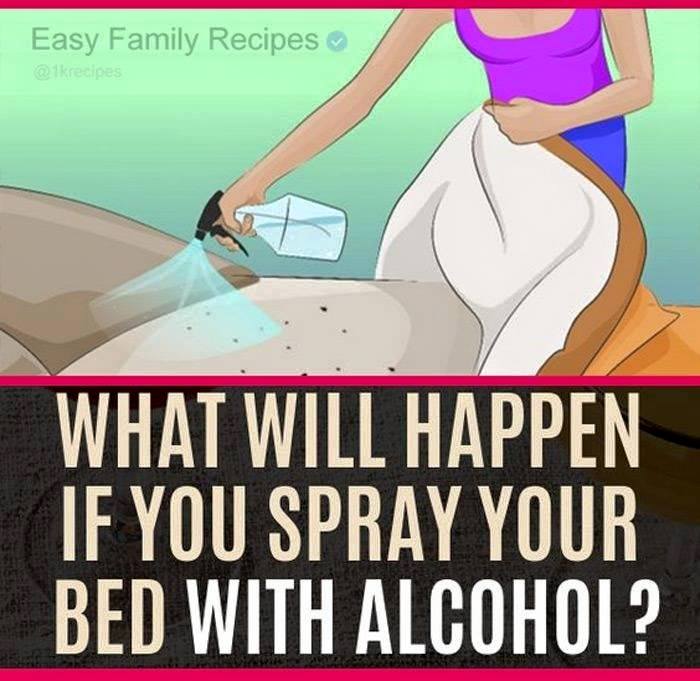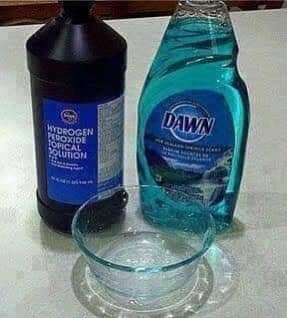Why alcohol may not be your best choice
Alcohol works two ways to kill bedbugs. First, it acts as a solvent, which means it eats away the bug’s outer shell. The dissolving action might be enough to kill some bedbugs, but alcohol delivers a one-two punch. It also acts as a desiccant, a substance that induces drying out.
With the outer shell dissolved, the alcohol dries out the bug’s insides, finishing the job. It kills eggs in the same way: dissolving and drying out the egg and preventing it from hatching.
Alcohol is inexpensive, it’s readily available in every drugstore in the nation, and it can be effective. So why isn’t everyone opting to end their bedbug problem with it?
It requires direct contact
Here’s the tricky part: Alcohol only kills on contact. That means you have to spray the bugs directly, and it can be extremely difficult to find and expose bedbugs if you have an infestation.
Bedbugs can hide in very small amounts of space — cracks in furniture, electrical outlets, between books on shelves. Getting alcohol into these spaces can be almost impossible.
Bedbugs often gather in out of the way spaces (called “harborages”), so killing the bugs you can see won’t eradicate the ones you don’t see.
It’s not 100 percent effective
Researchers at Rutgers University studied two different products with high concentrations of isopropyl alcohol. One product contained 50 percent alcohol and the other 91 percent alcohol. Neither product killed more than half of the bugs.
Bedbugs infestations spread quickly — the average female can lay up to 250 eggs in her lifespan, so a product that kills just half of the accessible population isn’t going to resolve the problem.
It’s flammable
The most important reason to avoid using alcohol to kill bedbugs has nothing to do with the bugs themselves. Isopropyl alcohol is extremely flammable.
Though it dries quickly, spraying it on upholstered furniture, carpets, fabrics, clothing, and mattresses creates a fire hazard. Vapors that linger in the air are also highly flammable.
In 2017, a Cincinnati woman tried to rid her home of bedbugs by dousing furniture in alcohol. A nearby candle or incense burner ignited the flames, and the resulting fire left 10 people without homes. The Washington Post reported at least three other similar cases.
What does the EPA recommend?
Most researchers who study bedbug infestations recommend that you hire a professional exterminator. While this approach can be costly, it will probably save time and frustration in the long run.
The Environmental Protection Agency (EPA) recommends what it calls the integrated pest management approach, which combines chemical and non-chemical methods.
If you aren’t able to dry your belongings on high heat, place them in strong garbage bags, tie them up, and place them somewhere it’s likely to be very hot for prolonged periods, such as in a car during summer.
Bedbugs are notoriously hardy, and they can live for months without a blood meal. If possible, leave the infested belongings in sealed containers for several months to year.
The EPA also recommends treating your home and belongings with pesticides to help rid your home of bedbugs:
Find the bedbug pesticide that best meets your needs using the EPA’s interactive list.
Follow the dosage amount and timetable on the product label. If you don’t use enough of the pesticide, the bedbugs could become resistant to it. If you don’t dose at the right intervals, you could miss the egg hatching cycle.
If you aren’t able to control the infestation on your own, reach out for professional help before you re-apply the pesticide. A 2014 studyTrusted Source noted that people tend to over-apply pesticides when trying to control bedbug populations, and the levels of pesticide residue on places where adults, children, and pests sit or sleep can reach dangerous levels.
Pesticide resistance
Another reason you may want to consult with a professional service is that bedbugs in many regions have developed resistanceTrusted Source to the most widely available pesticides.
In some areas, pesticides containing pyrethrins, pyrethroids, and neonicotinoids no longer have any effect on bedbugs. To find out if bedbug populations in your area are resistant to these chemicals, call your county extension service.
Natural remedies
Big box home stores, hardware shops, and grocery stores stock a plethora of products claiming to kill bedbugs, but there is little scientific evidence to support many of their claims.
One 2012 study found that a products containing essential oils, EcoRaider and Bed Bug Patrol, killed more than 90 percent of bedbugs under lab conditions. It’s important to note that killing bedbugs in a petri dish is vastly different from finding them and killing them in your home.
Strong concentrations of oregano essential oil (40 percent and 99 percent) were found in a 2018 studyTrusted Source to repel bedbugs in lab conditions for more than nine hours — a sufficient amount of time for a good night’s sleep.
In the study, oregano essential oil repelled better than a traditional pesticide (DEET) in stick form. Again, lab conditions and home conditions might not yield the same results.
Your first step
Before you begin treating your dorm room, office, home, vehicle, or belongings, make sure what you’re dealing with is actually a bedbug infestation. According to the National Pest Management Association, these are reliable indicators that you have a bedbug problem:
tiny reddish smears on your bedding (blood and fecal matter)
white or yellow molted shells
itchy red bites on the parts of your body that are exposed during sleep
a sweet smell in the area of a heavy infestation
You may also notice the bugs themselves — flat, reddish brown bugs less than a quarter inch long. One common place to find them is clustered near the piping on your mattress.
The takeaway
While isopropyl alcohol, known as rubbing alcohol, can kill bedbugs and their eggs, it isn’t an effective way to get rid of an infestation.
Alcohol has to be directly applied to the bugs, which can be hard to accomplish since bedbugs hide in cracks and crevices. Even if you manage to spray or douse some bedbugs with alcohol, it doesn’t always kill them.
Because rubbing alcohol is so flammable, spraying it around your house could present a serious fire hazard. You’re better off taking an integrated approach to the problem, using pesticides carefully and isolating or removing infested items from your home.
If you aren’t successful ridding your home of the pests on your own, work with a professional exterminator to correct the problem.



